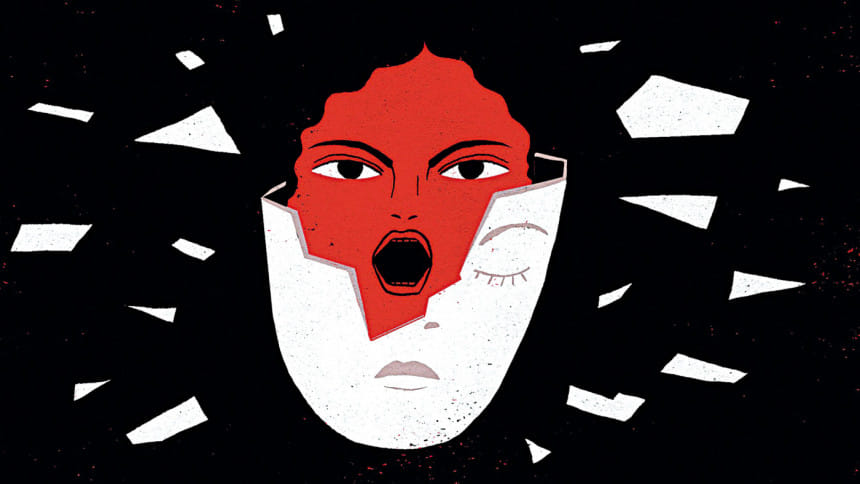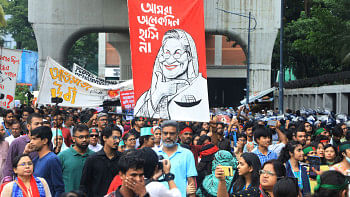Combatting rape: A more effective strategy is to properly enforce existing laws

LD: What, in your opinion, are the reasons of the recent surge in incidence of rape?
MJ: Rape culture is nothing new; it has always existed. In the present pandemic situation, the incidents have gone up. There is not one specific factor that has resulted in the rise. When rapes happen on a large scale, it means that our social institutions have failed. Our surroundings, families, schools etc. collectively create a system of impunity and are not playing their respective roles in preventing these incidents of violence. Our literacy rate is improving but our perceptions have not changed. Moreover, the criminal justice system is not sufficiently equipped - conviction rate of rape is extremely low. As a result, most accused walk free. It is true that an accused cannot be convicted unless the crime has been proved beyond reasonable doubt. However, the low rate of conviction is a result of legal and social factors. One such factor is that the victims are reluctant to come forward out of fear of stigmatisation, isolation and further violence. Even in the instances where cases are filed, it becomes challenging to collect proper evidence and the burden falls on the victim to prove that they are of 'good character'. Although the laws state that cases must be disposed of within 180 days, to the best of my knowledge, there are almost no instances where this has been implemented.
A culture of impunity results in repeated offence by perpetrators and also encourages others to engage in similar behaviour. The increase in rape is currently creating countrywide outrage, but it is important to remember that the advocacy cannot end here. We must continually challenge rape culture and this change must start from our families, schools and social institutions. These changes cannot be brought about overnight; advocacy must continue till necessary reforms are achieved. Political will of the government is crucial for the realisation of these reforms.
LD: What are the challenges of legal enforcement of the rights of rape victims?
MJ: Our laws are a continuation of the colonial legacy. Although the government has enacted the Nari O Shishu Nirjatan Daman Ain in 2000 with stringent punishments, there is still a need to change the definition of rape. The definition in its current form excludes cases of rape of transgender persons, rape of male persons or marital rape when the bride is not aged below 13 years. The Evidence Act 1872 allows for the admission of character evidence of the prosecutrix which works as a huge barrier in achieving convictions. NGOs and rights activists have been advocating for reforms in these areas. There have also been concerns raised regarding the need to train judges, prosecution, law enforcement etc. in order to facilitate gender-sensitivity in the justice system.
The national helpline for violence against women can be an effective first point of contact but a victim has to go through the existing justice system if they want to seek redress. We have seen that the national helpline as well as non-governmental legal aid services were open during the lockdown and incidence of violence had been reported. But we faced difficulties while providing them assistance. Moreover, the closing of the courts was also a challenge. Our court systems largely rely on physical presence; this has posed a lot of difficulties in accessing justice in recent times. To sum it up, the existing helpline and legal aid services should be appreciated for creating a response mechanism system but they have some limitations which must be evaluated.
LD: Do you think increasing the punishment of rape to death is an effective solution?
MJ: Arguments exist both in favour of and against the imposition of death penalty. On one hand, some countries have abolished death penalty and contrarily, a few countries have enforced death penalty for rape. However, to curb rape, it is important to ensure that the existing laws are being effectively implemented. The pre-existing provision of life sentence is in itself a harsh punishment but despite that, we have collectively failed to reduce the incidence of rape. Harsh punishments may or may not deter crimes, but they cannot be the solution. A more effective strategy is to properly enforce existing laws. Moreover, punishments are punitive and not restorative.
Compensation may be a remedial solution. Victims incur large expenses if they want to bring their cases before the court. Compensation may provide assistance in this regard. However, as the conviction rate itself is very low, many victims may not be able to benefit from the compensation unless it is provided independent of conviction. In India, there is a central rape victim compensation fund which supports the victims in accessing justice. Compensation may also help the victims in restoring their places in society.
LD: What role do you think NGOs can play in facilitating access to justice for rape victims?
MJ: The NGOs are like the shadow of the government, in my opinion. NGOs can play an assisting role but the ultimate responsibility of bringing about positive changes remains with the government. NGOs have worked in individual capacities and in cooperation with each other to advocate for change and create community engagement at the grassroot levels. They play a vital role in bridging the gap between communities and the formal justice system. They also conduct research and make recommendations for reforms. In short, NGOs have a vital role in the fight for gender-justice.
LD: Thank you for your time.
MJ: You are welcome.

 For all latest news, follow The Daily Star's Google News channel.
For all latest news, follow The Daily Star's Google News channel. 



Comments